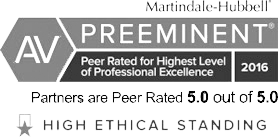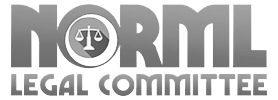Utah law prohibits a variety of computer crimes that destroy or interfere with the normal operation of a computer system. Most computer crimes involve hacking or breaking into computer systems with the intention to alter or modify the existing settings.
When computer hacking is malicious in nature, the attacks can cause serious disruptions to the computer system or network.
In Utah, computer crimes are sometimes called cybercrimes. Utah law prohibits both unauthorized access and other forms of computer trespass. The laws also prohibit the use of ransomware, denial of service attacks, phishing, and spyware.
If you were charged with any type of computer crime in Utah, contact an experienced criminal defense attorney at Brown, Bradshaw & Moffat, LLP. Our cybercrime defense attorneys will help you fight accusations involving the unauthorized access of a computer network or system. In some cases, computer crimes are also prosecuted under Utah's theft statutes.
Many of these investigations involve the Cyber Crimes Unit (CCU) of the Utah Department of Public Safety. Law enforcement officers with the CCU investigate the criminal use of computers involving internet fraud, the theft of data, unauthorized access, and network intrusions.
The attorneys at Brown, Bradshaw & Moffat are experienced in representing clients charged with a wide variety of white collar crimes in the State of Utah at both the state and federal level.
Call (801) 532-5297 for help with your case today.
Under § 76-6-703(1)(a), it is unlawful for a person to access or attempt to access computer technology, without authorization, or in excess of the person's authorization, if the access or attempt to access results in:
Under § 76-6-703(1)(b), once someone has accessed technology they are allowed to access, it is unlawful to knowingly take or attempt to take unauthorized or unlawful action that results in:
Under § 76-6-703(1)(c), it is unlawful to knowingly engage in a denial-of-service attack. A denial-of-service attack involves flooding the bandwidth or resources of a targeted system or servers with traffic. The unusual flood of traffic then prevents legitimate users from accessing information or services.
The statutory scheme also prohibits the distributed denial-of-service attack which occurs when the attacker compromises and takes control of multiple computers with security flaws and uses them to launch the denial-of-service attack.
A violation of§ 76-6-703 is charged as a class B misdemeanor when:
The penalties are enhanced depending on whether the economic loss or other loss or damage caused or the value of the money, property, or benefit obtained or sought to be obtained is or exceeds a certain amount including:
The penalties for these computer crimes are charged as a third-degree felony when:
Under § 76-6-703(3)(a), a person who intentionally or knowingly and without authorization gains or attempts to gain access to a computer, computer network, computer property, or computer system under circumstances not otherwise constituting an offense under this section is guilty of a class B misdemeanor.
Under § 76-6-703(4)(a), if a person who, with intent that electronic communication harassment occur, discloses or disseminates another person's identifying information with the expectation that others will further disseminate or use the person's identifying information is guilty of a class A misdemeanor if the information is of a minor and a class B misdemeanor if the information is of an adult.
Alternatively, under § 76-6-703(4)(b)if the disclosure or dissemination of another person's identifying information results in electronic communication harassment, as described in Section 76-9-201, of the person whose identifying information is disseminated, the person disseminating the information is guilty of:
Under § 76-6-703(5), a person who uses or knowingly allows another person to use any computer, computer network, computer property, or computer system, program, or software to devise or execute any artifice or scheme to defraud or to obtain money, property, services, or other things of value by false pretenses, promises, or representations, is guilty of an offense based on the value of the money, property, services, or things of value, in the degree set forth in Subsection 76-10-1801(1).
Under § 76-6-703(6), a person is guilty of a third-degree felony if the person intentionally or knowingly, and without lawful authorization, interferes with or interrupts critical infrastructure.
Under § 76-6-703(3)(b), a retailer that uses an electronic product identification or tracking system, or other technology, to identify, track, or price goods is not guilty of a violation of Subsection (3)(a) if the equipment designed to read the electronic product identification or tracking system data and used by the retailer to identify, track, or price goods is located within the retailer's location.
Under § 76-6-703(7), it is an affirmative defense to Subsection (1), (2), or (3) that a person obtained access or attempted to obtain access:
Under § 76-6-703(8)(a), an interactive computer service is not guilty of violating this section if a person violates this section using the interactive computer service and the interactive computer service did not knowingly assist the person to commit the violation.
Under § 76-6-703(8)(b), a service provider is not guilty of violating this section for:
Under § 76-6-703(9), Subsections (4)(a) and (b) do not apply to a person who provides information in conjunction with a report under Title 34A, Chapter 6, Utah Occupational Safety and Health Act, or Title 67, Chapter 21, Utah Protection of Public Employees Act.
Under § 76-6-703(10), this section may not apply to, and nothing in this section may be construed to impose liability or culpability on, an interactive computer service for content provided by another person in accordance with 47 U.S.C.A. Sec. 230.
Under § 76-6-703(11), this section does not affect, limit, or apply to any activity or conduct that is protected by the constitution or laws of this state or by the constitution or laws of the United States.
Use the form above to request your free, confidential case evaluation. Our office will contact you as soon as possible to arrange for you to discuss the facts of your case with an experienced criminal defense attorney in Salt Lake City, Utah.
Note: By submitting the above form, you are requesting a free and confidential consultation with one of our attorneys to discuss the specific facts of your case. We will evaluate your unique situation and provide you with valuable information about how an attorney may be able to help you. Please do not provide any confidential or time-sensitive information using this online contact form. If your situation is urgent, please call us at (801) 532-5297. We look forward to hearing from you.
The use of this form for communication with our personnel does not establish an attorney-client relationship.
Mark has represented our son for over ten years. We have a difficult situation but we have never doubted that Mark, and now, Mike, care about him and our family. Their caring advice has been a lifeline for us.
Mike Holje was there for me and helped me get the charges dismissed. He was fantastic. I am so thankful for this firm.
Jim Bradshaw worked with me on a case and was helpful, realistic and very professional. I found him to be one of the best attorneys (and person) I have encountered.
I used Brown, Bradshaw & Moffat and would recommend them to anyone. Everyone in his or her office is kind, efficient and very responsive. You are treated respectfully and on an equal playing field.



